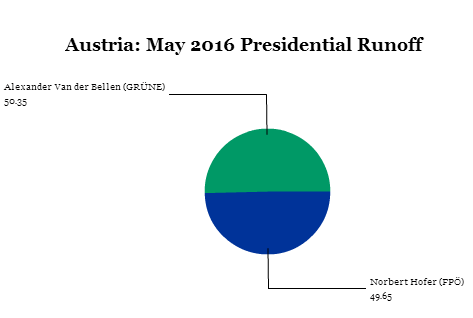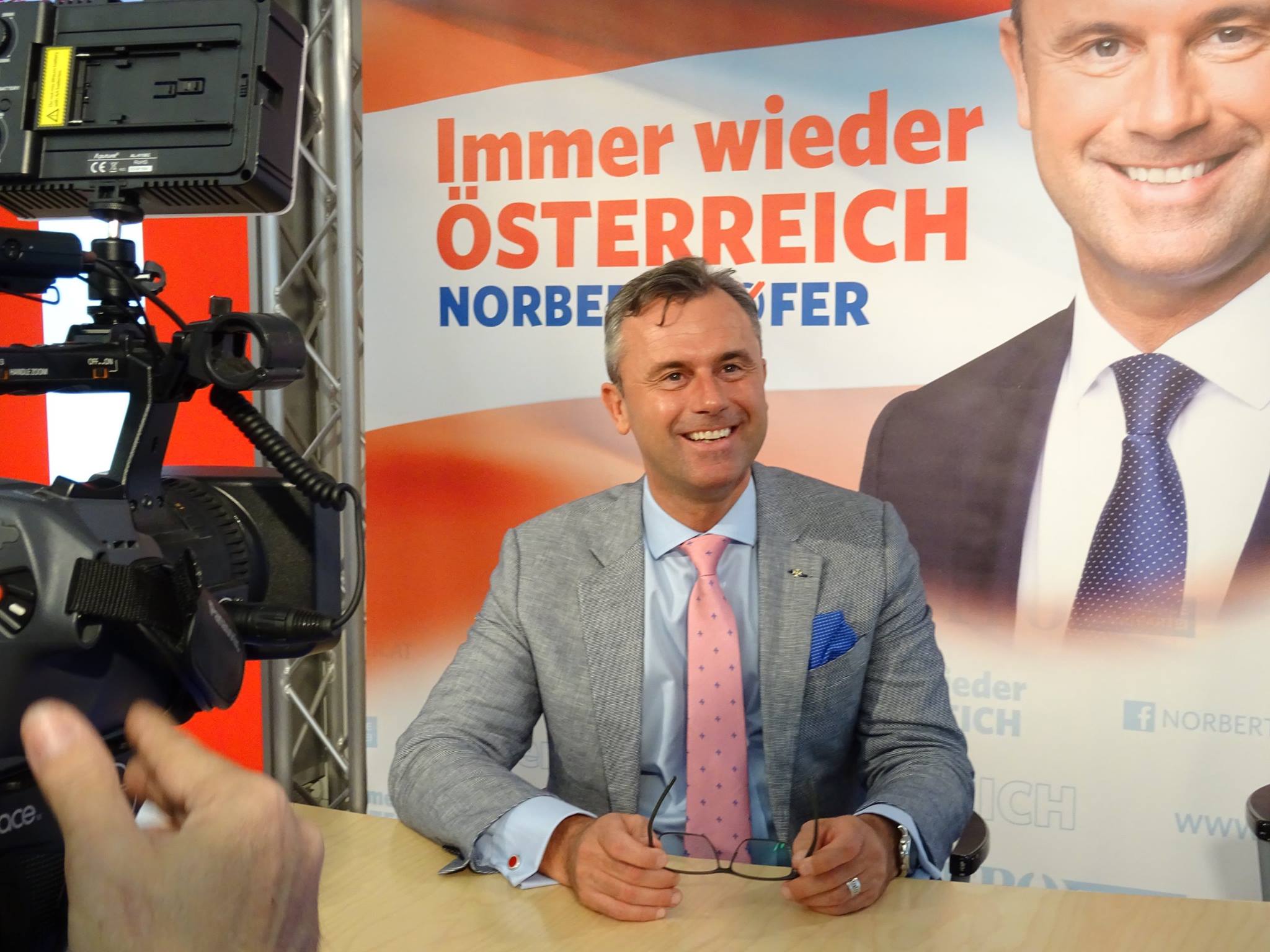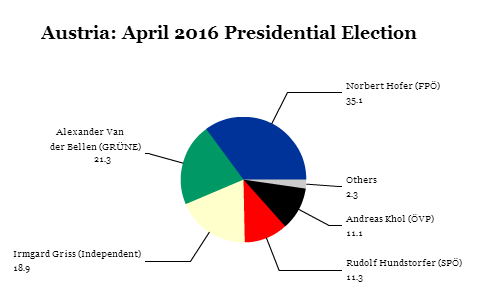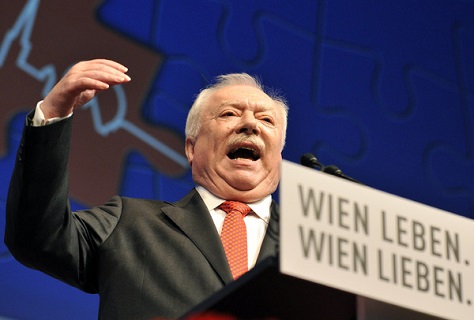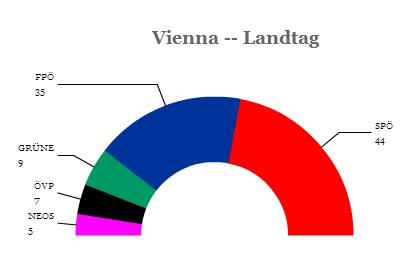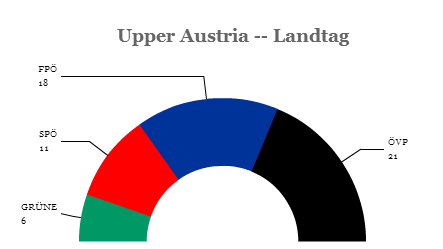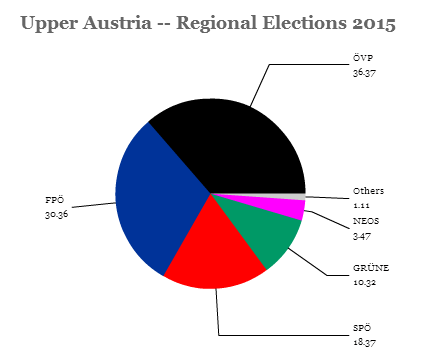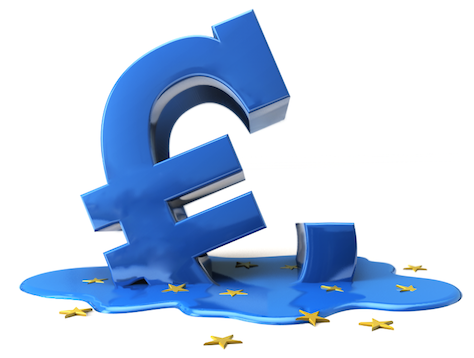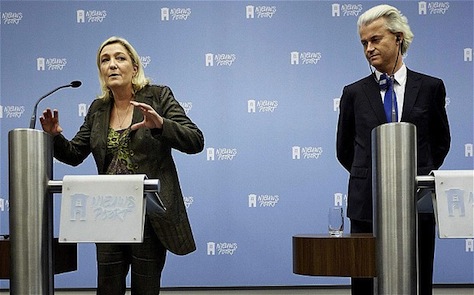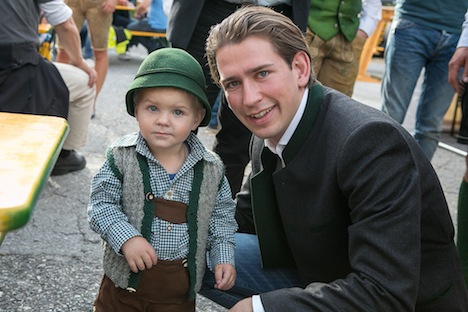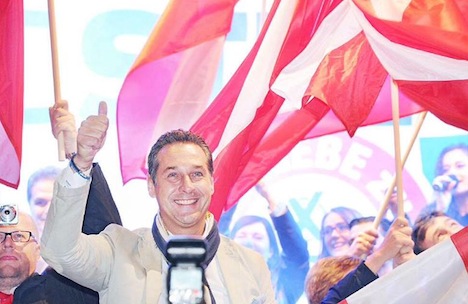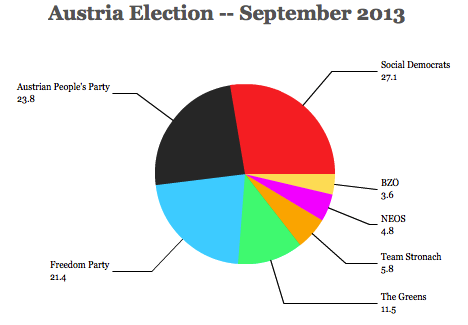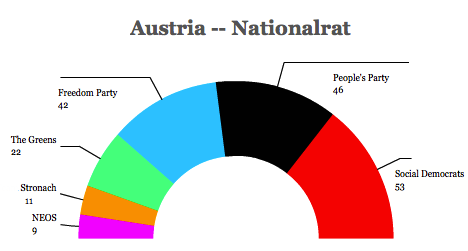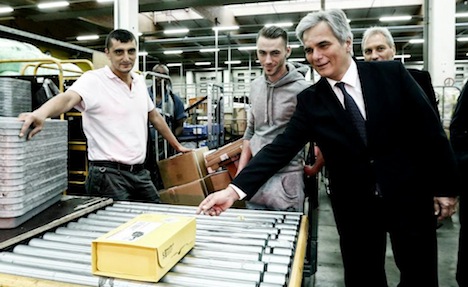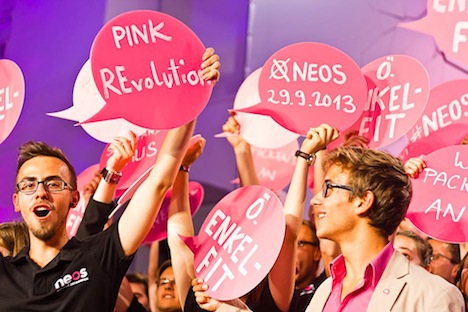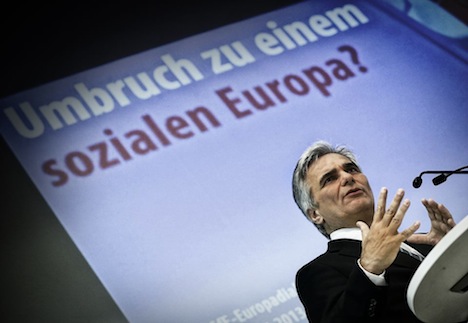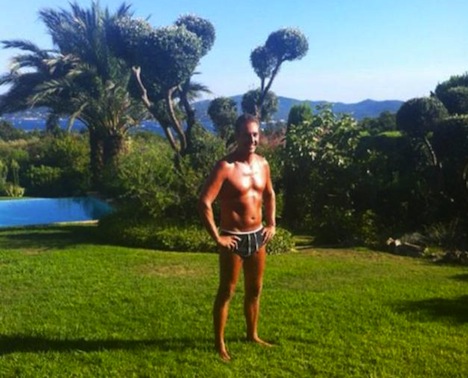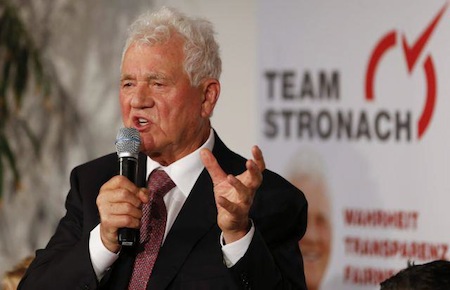
It took the counting of around 750,000 postal votes on Monday to settle what had been a too-close-to-call runoff to determine who would win Austria’s (mostly ceremonial) presidency.![]()
The winner, by a very narrow margin, is Alexander Van der Bellen, a 72-year-old professor and, nominally an independent, though formerly a parliamentary leader of the Die Grünen (Austrian Green Party), and you could almost hear the palpable sigh of relief from across the European Union as far-right presidential candidate Norbert Hofer conceded defeat.
But it’s a hollow relief.
The result means that Austria’s hard right will not occupy the presidency and, therefore, will not be able to attempt to terminate the current government or try to wrest greater powers from Austria’s parliament. But given the tumult of the past month in Austrian politics, the hard right has clearly been emboldened by the presidential race, and it will now look to the next parliamentary elections to take real power.
The first-round, double-digit victory of Norbert Hofer, the 45-year-old candidate of the right-wing, anti-immigrant Freiheitliche Partei Österreichs (FPÖ, Freedom Party of Austria), stunned not only Austria, but all of Europe. It represents the closest than any far-right party has come to winning power at the national level in the European Union since the 1930s.
* * * * *
RELATED: Far-right victory in Austrian presidential vote shocks Europe
* * * * *
Its success shouldn’t have been surprising. The Freedom Party has increasingly gained on the country’s mainstream parties, and it nearly toppled state governments in regional elections last autumn.
Despite its defeat, the FPÖ has been able not only to undermine a sitting chancellor, but to force his resignation. After social democratic chancellor Werner Faymann initially welcomed refugees to Austria last summer, he abruptly reversed course under pressure from the Freedom Party and angry voters, instead co-opting the rhetoric and the policies of the far right, complete with border fences and anti-immigration crackdowns.
But the candidate of Faymann’s center-left Sozialdemokratische Partei Österreichs (SPÖ, Social Democratic Party of Austria) finished in fourth place, and shortly after the first-round vote, the Social Democrats essentially forced Faymann to resign, bringing to an end an eight-year tenure leading a grand coalition government with the center-right Österreichische Volkspartei (ÖVP, Austrian People’s Party). For its part, the ÖVP presidential candidate placed an even more disappointing fifth.
Faymann, to his credit, ably led Austria through the 2008-09 global financial panic and the 2010 eurozone crisis, and Austria and its banking system, moreover, helped stave off a broader crisis in central Europe and the Balkans. Instead of leaving office, having made the noble case for welcoming refugees, he left power earlier this month after capitulating to the hard right. Continue reading Austrian center wins a hollow presidential victory
